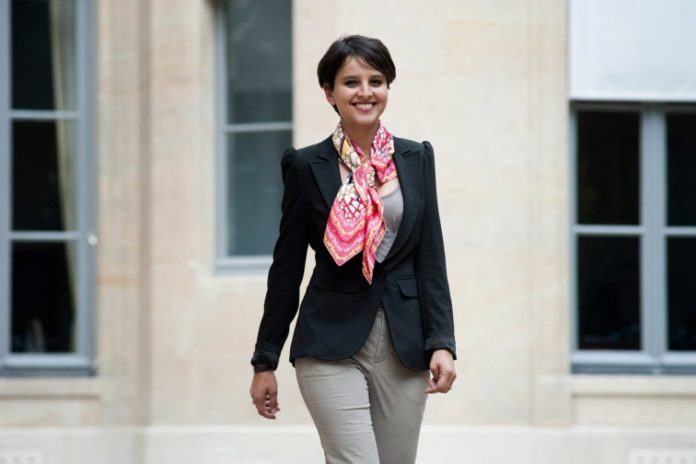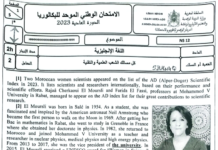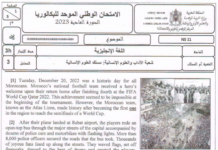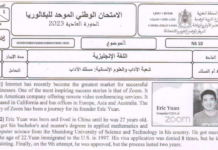The exam’s Comprehension Text
[1] Najat Belkacem was born on October 4th, 1977, in a farmhouse in Bni Chiker, a village near Nador. Her father, Ahmed, had emigrated to France before she was born. She lived with her grandfather and she still remembers gathering water and helping him with the farm work.
[2] When Najat was five, her father found a permanent job and sent for his wife and daughters to join him in 1982. Najat grew up in the suburbs of Amiens, France. The little girl felt the shock of the new culture. She didn’t speak a word of French. “Leaving your country, your roots, can be painful. My father had already found his place, but for us, it was really hard,” she says.
[3] Her father set strict rules: she was forbidden to hang out with friends or to go out to cafés before the age of eighteen. As a result, Najat devoted all her time and energy to her studies. By the end of her first year, she could read and speak French fluently.
[4] She received French citizenship shortly before joining university as a law student. It was there that she discovered the prestigious Paris Institute of Political Studies. She took the entrance exam and passed. At the institute library, she met Boris Vallaud whom she married later. The couple has followed similar paths into government. “It’s very nice to have a husband who moves in the same world as I do,” she says.
[5] In March 2008, she was elected ‘Conseillère Générale’ of the Rhône department. On May 16th, 2012, she was appointed to French President François Hollande’s cabinet as Minister of Women’s Rights and Spokesperson for the government. On August 25th, 2014, she became the first woman to be appointed Minister of Education and Research in France.
[6] Najat has proved that there are no boundaries to what you can achieve if you work hard. Her story reminds us that immigrants are valuable human capital. If we believe in them and invest in them with the right education, there are no limits to what they can achieve.
Adapted from: www.wikiwand.com
National exam | Humanities Stream | Ordinary Session 2017 with Answers





